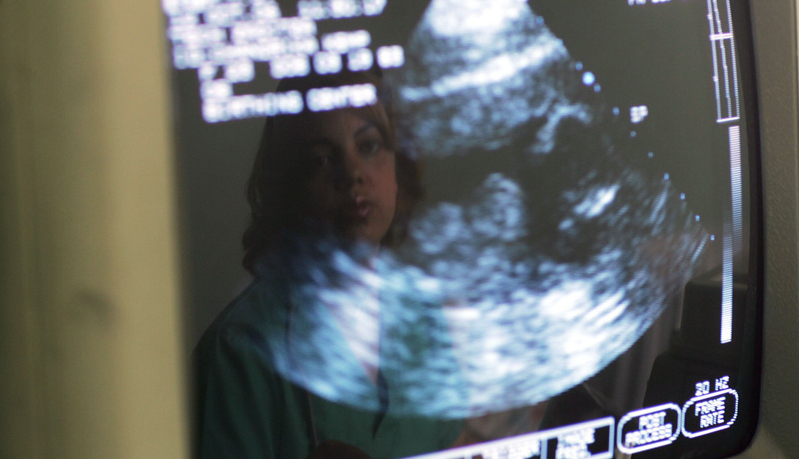
Abortion has made a number of headlines in the United Kingdom in recent weeks.
- UK Parliament’s vote to decriminalize women ending their pregnancies at any point up until birth.
- NT Wright stating that it may be best to abort as early as possible in exceptional cases (such as rape and incest).
- A paramedic jailed for secretly administering an abortion drug to his mistress, causing her to miscarry their child.
How do we process all of this?
What does the Bible have to say about abortion?
Each of these has spawned considerable commentary, and as I’ve navigated the musings of the multitudes, I’ve concluded that it is wiser to assess the commentary with truth than to consult the commentary for truth. So, what does the Bible have to say about abortion?
That makes for a quick study as the word never shows up within the scriptures, but given that the word ‘trinity’ doesn’t show up either, I believe that approach is more likely to land you in a ditch than it is to reveal wisdom from the Bible.
When a word appears in scripture, we can take our cues from the text, but when it doesn’t, I’ve found it more helpful to lean in to the Bible than to lean back. Of the possible lines of inquiry here, I settled on this one: what does the Bible have to say about pre-born humans? Here’s some of what I found:
Known by God
Before they were known, or seen or recognized by anyone else, they were valuable and real to God.
Isaac. Samson. Jacob and Esau. Josiah. John the Baptist. Jesus. What these fetuses, newborns, toddlers, boys, teens and then men have in common is that they were prophesied about before they were born. Before they were known, or seen or recognized by anyone else, they were valuable and real to God.
This stands not just for the select few whose births were prophesied, but also for other biblical figures like David and Jeremiah, for whom walking with God meant a revelation of his longstanding attention to and affection for them. God didn’t get to know them better as they got to know him. Their getting closer to God revealed how much he had always known them.
That each of these people were known by God before they were born does not correlate to auspicious circumstances around their births or palatable narratives around their conceptions. What is clear is that formation in the womb is itself a stage in a journey of being which has its origins in the mind of God.
“I knew you before I formed you in your mother’s womb. Before you were born I set you apart and appointed you to be my prophet to the nations.” Jeremiah 1:5 (NLT)
“You saw me before I was born. Every day of my life was recorded in your book. Every moment was laid out before a single day had passed. How precious are your thoughts about me, O God. They cannot be numbered!” Psalm 139:16–17 (NLT)
God’s knowledge of us precedes our knowledge of ourselves.
God’s knowledge of us precedes our knowledge of ourselves. His valuing of us precedes our valuing of ourselves, of others’ valuing of us.
The scope of his plans and purposes encompasses seen and unseen reality, time and space, cultural and legal frameworks.
A loss… to God?
In the case of the paramedic mentioned above, Stephen Doohan, the judge noted that Doohan had left his victim facing “a lifetime of pain and loss”. Given the weightiness of these words and the (rightful) public outcry at Doohan’s actions, a fault-line in public thinking on pre-born life becomes clear.
Doohan’s victim has incurred a lifelong loss because, while she presumably retains her capacity to become pregnant, what has been lost to her cannot be replaced by subsequent pregnancies, or by Doohan’s jail term, or any sum of financial compensation.
What has been lost to her is a child, and while it had never been born, it had been invested in.
What has been lost to her is a child, and while it had never been born, it had been invested in. It carried a genetic print that indelibly linked it to her, and her to it. While this isn’t made true by Doohan’s reprehensible actions, it is clearly easier for our society to acknowledge this truth because of them.
Even though he didn’t want this child, the fact that she did settles the question of whether this was a real loss. It was. It is. It continues to be.
I affirm the reality of this loss to the child’s mother, and surveying the passages above unveils an even weightier dimension to this loss: The investment of God into this human. The indelible link between this child and its Heavenly Father. The truncation of God’s purposes for this life.
“The Lord cares deeply when his loved ones die.” Psalm 116:15 (NLT)
A perfect mess
The prevailing approach to unborn life seems to me to be both consistent—and incoherent. It does not surprise me that wider consensus on the evil of an abortion is limited to abhorrent cases where the abortion is not consented to, because to recognize that God has a legitimate claim to pre-born life is to also acknowledge that God has a claim to life post-birth—a truth the Bible insistently points to, and one which we humans are inherently resistant to. As such, I won’t expect to see this heralded on national outlets any time soon, but I will seek to reject the consistent inconsistency of culture in favor of the dignifying clarity of scripture.
Will you?
Originally published by Being Human. Republished with permission.
Damilola Makinde is the UK Evangelical Alliance's advocacy engagement lead. Her background spans law, public policy, preaching, and worship leading. Damilola is originally from London but having grown up within a Nigerian diaspora in Ireland, her experience of tri-cultural heritage has contributed to the powerful and prophetic voice she holds today.
The Evangelical Alliance in the United Kingdom is made up of hundreds of organisations, thousands of churches and tens of thousands of individuals, joined together for the sake of the gospel. Representing our members since 1846, the Evangelical Alliance is the oldest and largest evangelical unity movement in the UK. United in mission and voice, we exist to serve and strengthen the work of the church in our communities and throughout society. Highlighting the significant opportunities and challenges facing the church today, we work together to resource Christians so that they are able to act upon their faith in Jesus, to speak up for the gospel, justice and freedom in their areas of influence.






